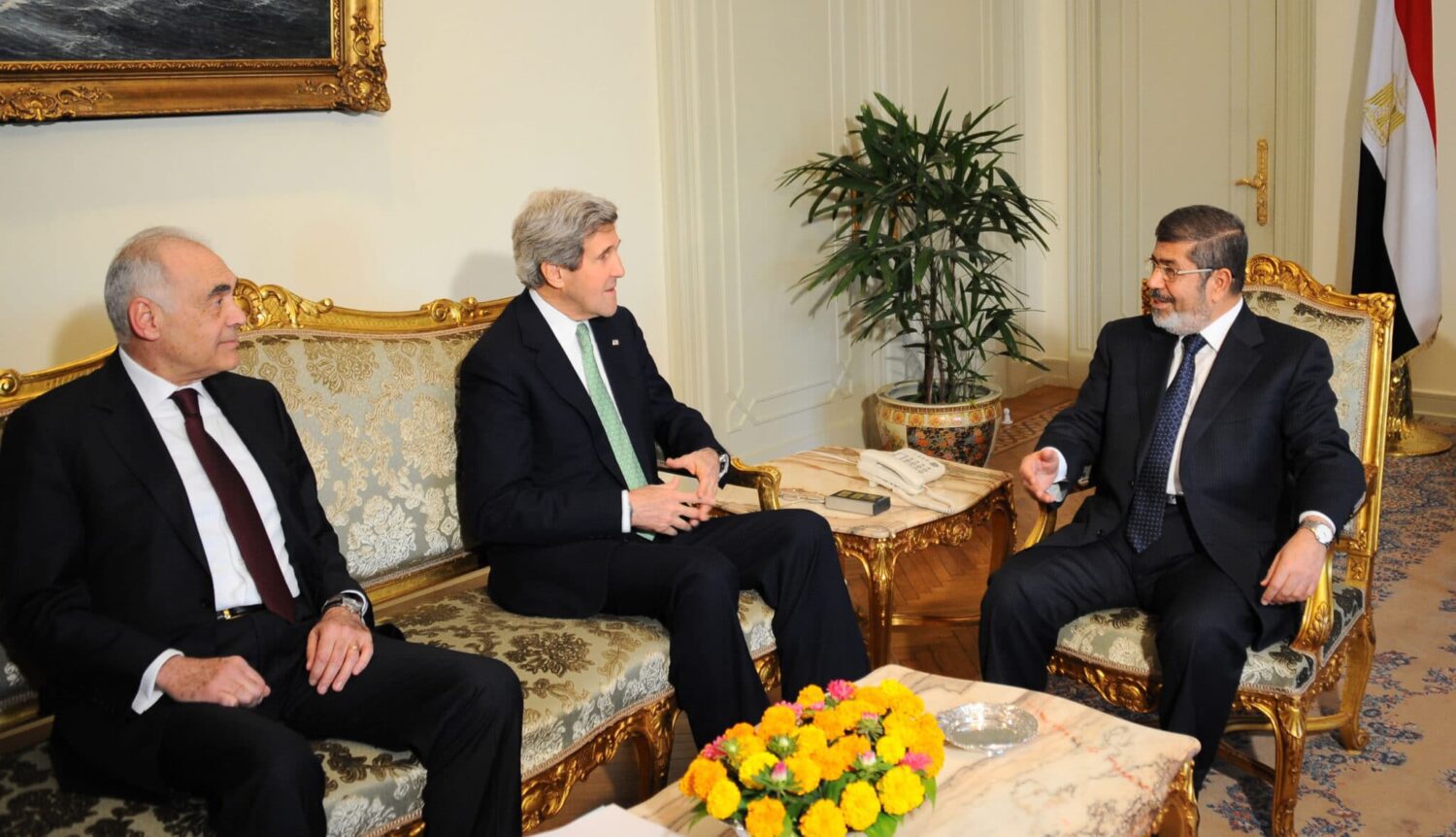
According to Arab critics, the United States’ policies in the Middle East have in recent years been vague at best, faltering at worst and almost invariably counterproductive. The accelerating events since the start of the Arab Spring in Tunisia in December 2010 have been witness to such policies.
Washington’s position on Egypt’s 25 January Revolution in 2011 bewildered many observers. Just days after the large-scale popular uprising, the US came out in support of the transfer of power from President Hosni Mubarak, a close US ally, to the Muslim Brotherhood, which Mubarak had relentlessly pursued. This support was interpreted in some circles in the Arab world as part of a US understanding with the Muslim Brotherhood to empower the group in the region. Public meetings between US officials and Egyptian Muslim Brotherhood leaders provoked scepticism among some politicians and observers about US policy toward its regional allies. In Washington, such meetings with politicians are considered normal diplomatic practice.
This scepticism was augmented by Washington’s official rejection of the coup in Egypt on 3 July 2013, which saw the removal of President Mohammad Morsi by a coalition led by General Abdel Fattah al-Sisi. Critics of the US’s stance pointed out that Egyptian protesters who had come out against President Morsi outnumbered those who had demonstrated against President Mubarak.
American allies in the region, including Saudi Arabia, United Arab Emirates, Kuwait and Jordan, took a different view of the Morsi’s ouster, however, providing the el-Sisi administration with vital political and financial support. Later, in May 2015, the absence of the leaders of Saudi Arabia, UAE and Bahrain at a summit in Camp David was seen by some analysts as a rebuff to President Obama’s talks with Iran over its nuclear ambitions.
The US position on the Syrian crisis strengthened the opinion that US policy in the Middle East is vague and confused. Washington rejected military intervention in Syria, and some US officials even suggested that President Bashar al-Assad could be a partner in resolving the Syrian crisis. Lack of Western support for the Syrian liberal opposition has contributed to the emergence of extremist Sunni forces in the civil war, including Islamic State (IS) and the al-Qaeda-linked al-Nusra Front.
The Syrian crisis is partly a reflection of the wider tensions between Iran and several Arab countries spearheaded by Saudi Arabia. Some US allies have concluded that there is a US-Iranian agreement on Arab regional events, and the nuclear deal struck between Iran and world powers on 3 April 2015 served to reinforce this conclusion. They question whether the US will sacrifice its moderate Arab friends in return for improving ties with Iran. Are there US-Iranian understandings regarding the future of the region that extend beyond Iran’s nuclear programme? Both Washington and Tehran deny such speculation.
A US-led international coalition, which includes Sunni-dominated Arab countries, has been formed to fight IS from the air. However, Washington’s acceptance of Iran-backed Shiites to engage in the anti-IS campaign on the ground has angered Sunni allies. Reports from combat zones, especially the Iraqi city of Tikrit, said that Iranian officers were embedded in the Shiite militias fighting IS. The US seemingly did not even press the Iraqi government to arm Sunni tribes and residents of Tikrit, who received nothing but promises from the US ambassador in Baghdad in this respect.
What happened in the battle to liberate Tikrit reinforced the notion that the US and Iran are coordinating in a number of areas, an idea adopted by a large number of Sunni Arab politicians and intellectuals. Failure to engage Sunni Arab tribes and populations in the war against IS in Sunni areas, and leaving the mission in the hands of Iran-backed Iraqi Shiite militias from Baghdad and southern Iraq – groups that have looted Sunni property in combat zones – further reinforced the belief in a US-Iranian understanding. The Sunni Arab perception that IS is being fought by Shiite militias could create veiled support and sympathy for the Islamist militant group, a purely Sunni organization that is hostile toward Iran and Shiites.
The most serious threat facing the Middle East now is the further collapse of the state system, which Sunni leaders fear Iran would utilize to extend its influence as it did after the US invasion of Iraq in 2003. The collapse of the state system could also result in the US losing its moderate allies and facilitate the expansion of religious extremism.


